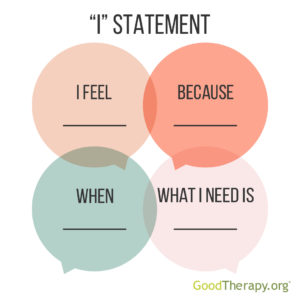The Secrets of Effective Communication
We have all heard that communication is the 'key' to a lasting, happy relationship. However, we often misinterpret that and not all communication leads to a happy ending, so to speak. There are forms of communication that can have negative impacts and hurt others. In a podcast, David D. Burns discusses five communication secrets that can transform conflict and misunderstanding into intimacy and conviction. These “Secrets of Effective Communication” revolve around Empathy, Assertiveness, and Respect. They can also be remembered using the acronym, EAR.
The first “secret” of effective communication is the “Disarming Technique”. This is where you find truth in what the other person is saying, even if it seems illogical, self-serving, distorted, or just plain “wrong.” This will most likely require intently listening. Another great idea to add to the disarming technique is to replace negative untrue thoughts with true positive thoughts. There is something about hearing the words “You’re right” or “I totally agree with you” that can cause a person to lower their guard and feel less negative towards us. To disarm effectively, you often need to look deeper than the surface of the actual, literal words a person says to find a deeper meaning--something true you can agree with. An example of using the Disarming Technique would be if your friend tells you, Hey [name], it seems like you don't like me very much. At first, you may want to say something like, "What! Of course I like you!" Instead, you would say something like “That is difficult for me to hear. I must've not done a very good job of listening to you, or giving you the empathy and aid you need.” This way, you would be finding the truth in what they are saying and agreeing with them that you have let them down. This may be very hard to do, but it can strengthen your relationship with them based on understanding.

The second is “Thought and Feeling Empathy.” What is empathy? Empathy is a crucial aspect of emotional intelligence, which also includes the ability to identify and regulate one’s own emotions and to use these abilities to communicate more effectively. Psychologist Carl Rogers described empathy as “seeing the world through the eyes of the other, not seeing your world reflected in their eyes.” A way that you can show your understanding and empathize with your partner is to summarize what he or she just said and acknowledge how he or she is probably feeling, given what they just said. An example of this would be “I am hearing you say…” as you compromise their words into your own.
The third mentioned by David Burnes is to inquire. This is by asking gentle, probing questions to learn more about what the other person is thinking and feeling. The key to this secret of communication is to be humane and merciful when inquiring about understanding. A good listener pays attention to the words and feelings your partner exhibits. This sends a message to them that they are important and heard.

Next, use "I Feel" Statements. You express your own feelings and ideas openly according to the formula, “I’m feeling X, Y, and Z right now,” where X, Y, and Z refer to any of a wide variety of feelings. These 'feelings' can be expressed as hurt, sad, jealous, or any emotion put into words. These are statements that describe your feelings from your own perspective and tell how you are affected by your partner's behavior instead of placing blame.

Last but not least, utilize affirmations. (formerly called Stroking): You convey warmth, caring, and respect, even in the heat of battle. Actions tied with words can be very useful in conveying positive care. Simple phrases will go a long way in communicating how much they are appreciated and in feeling loved. Words of affirmation can also be important in other types of interpersonal relationships. Positive affirmations can also be a great way to show gratitude towards your family members, co-workers, or boss.
Here are a few examples of words of affirmation:
- "I love/appreciate it when you..."
- "Thank you for..."
- "I’m so thankful to have you in my life."
- "It impressed me when you..."
- "I’m really proud of you."
:max_bytes(150000):strip_icc():format(webp)/words-of-affirmation-4783539-FINAL-8d6462609cf7494ab92f4541eeb1e43c.png)
Comments
Post a Comment